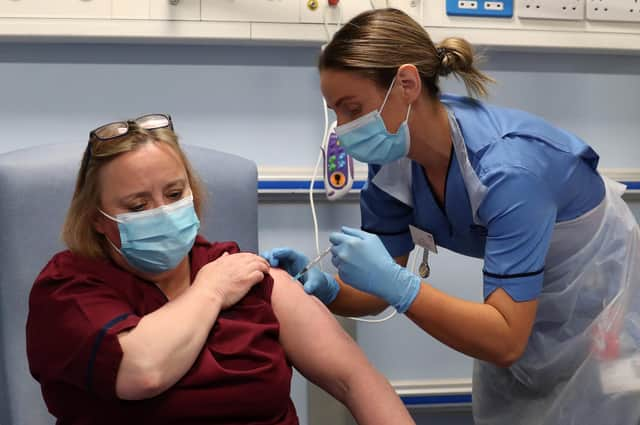The spread of the vaccines versus the spread of the virus - Scotsman leader


Scotland has been given an allocation of more than 500,000 doses to use in January and First Minister Nicola Sturgeon expects the country to have access to more than 900,000 vaccine doses, including both the Oxford and Pfizer jabs, by the end of the month.
Just under 5,000 Scots have now died of the disease, and almost 150,000 have tested positive since the start of the pandemic. On Friday yet another grim milestone was passed with the announcement of 93 deaths – the highest daily tally so far.
Advertisement
Hide AdAdvertisement
Hide AdWe are now very clearly engaged in a race between the spread of the virus and the spread of the vaccines. Matt Hancock, the UK Government's Health Secretary, stated yesterday that every adult will have been offered a vaccine by the autumn. Mr Hancock also said people could be vaccinated against Covid-19 every year in a similar way to the annual flu jab.
The world leader in the rollout of vaccines is Israel where, with the help of its army, one million people – a tenth of its population – were vaccinated by the middle of last week. France, by contrast, had only around 8,000 of its 67 million people vaccinated by last Tuesday.
Professor Devi Sridhar, chairwoman of public health at Edinburgh University and an adviser to the Scottish Government, rightly sounded a note of caution yesterday over relying too heavily on vaccines to defeat the virus.
We do not know, for example, how long people will maintain immunity or how many people will need to take the vaccine for the population to develop herd immunity.
Prof Sridhar said: “We have to continue rollout, keep saving lives through protecting vulnerable people with that. But it's not a strategy in and of itself, and relying on it alone is highly, highly risky, especially with all the new variants and mutations.”
But vaccines are clearly the one bright light in the darkness that now surrounds us, which is why it is more important than ever before that the Scottish and UK governments work together effectively on this front.
Comments
Want to join the conversation? Please or to comment on this article.